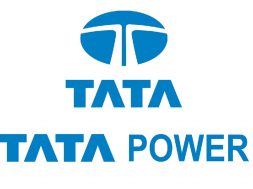
Increase in GST rates not a viable option for SMEs, will lead to unnecessary litigation
GST and Taxation for MSMEs: MSMEs with their tight budgets may not be able to take the extra cost associated with the imposition of a tax or the repeated changes in rates.
GST and Taxation for MSMEs: Recent newspaper reports indicate that due to fall in GST collections, the Government may be inclined to hike the rates of some products while imposing a tax on a few exempted products and services. The move would be to arrest the revenue decline experienced in the last months.
If the reports are to be believed, exempted products such as poultry products, dairy products, fruits and vegetables, food items, handloom products, jute may attract GST. In terms of service sector education, healthcare and hotel services priced at less than Rs 1000 are likely to come under the tax net. Products for instance frozen vegetables, coffee, tea, juices, apparel below Rs 1000 and solar panels which are now taxed at 5 per cent may see an upward revision in the rates.
The increase in these rates is directly going to affect the lower- and middle-class households. The SMEs and the MSMEs that majorly deal in such products are going to feel the complete impact of GST.
The rate adjustments have been a regular feature of the GST regime ever since it was introduced in July 2017. Thankfully, most of the adjustments were in the form of rate reductions. The issues with the compliances, the court interventions due to a plethora of interpretation matters and innumerable changes since its inception have already attracted negative publicity for a promising reform. Nonetheless, the willingness of the Government to systematize the reform with regular GST Council meetings which is ready to address the industry concerns is most definitely encouraging.
Nevertheless, is a hike in rates the only option left to improve the GST collections? Evidently, there is an overall slowdown of the economy because of lower production and demand. Under these circumstances, will GST on some essential commodities and exempted services give the desired results? The Government is aware that there are other issues plaguing the revenue collection, for example, the cumbersome tax compliance mechanism which is still throwing up challenges despite frequent attempts to correct it. Yet another example is the avoidable tax litigation that is not only an unnecessary expense for the assessees but also for the Government.
Show cause notices are issued repeatedly on identical matters without completing adjudication for earlier periods. The appeal mechanism takes months and sometimes years to pronounce orders. Issues that plague specific sectors run side by side for individual assesses at different jurisdictions due to lack of a central mechanism to address such situations. Contradictory orders because of no consensus end up in courts pushing the final solution by few more years.
Frequent adjustments of rates make budgeting calls difficult for businesses along with changes in the system that governs the invoicing, labelling and other record-keeping exercises. The affected sectors especially the MSMEs and SMEs with their tight budgets may not be able to take the extra cost associated with the imposition of a tax or the repeated changes in rates. Lack of an effective system in place could also result in businesses missing out on rate changes thus leading to unnecessary litigations.
The government is likely to argue that imposition of tax on exempted commodities and services may not have a negative impact due to availability of credits but this argument can only be tested in the long run. Meanwhile, the burdensome process of compliances will definitely add to the expenses.
Permanency of any tax reform is heavily dependent on stable rates and simple processes. While the government has the complete freedom to increase the rates to arrest the decline in tax collections, what needs to be examined is whether such hike in rate will actually increase the collection or lead to tax evasion. Moreover, the bigger question is whether the rate increase is going to be a pattern every time the collection dips?
(Rashmi Deshpande is a Partner at Khaitan & Co. The views of the author in this article are personal and do not constitute legal/professional advice of Khaitan & Co.)













